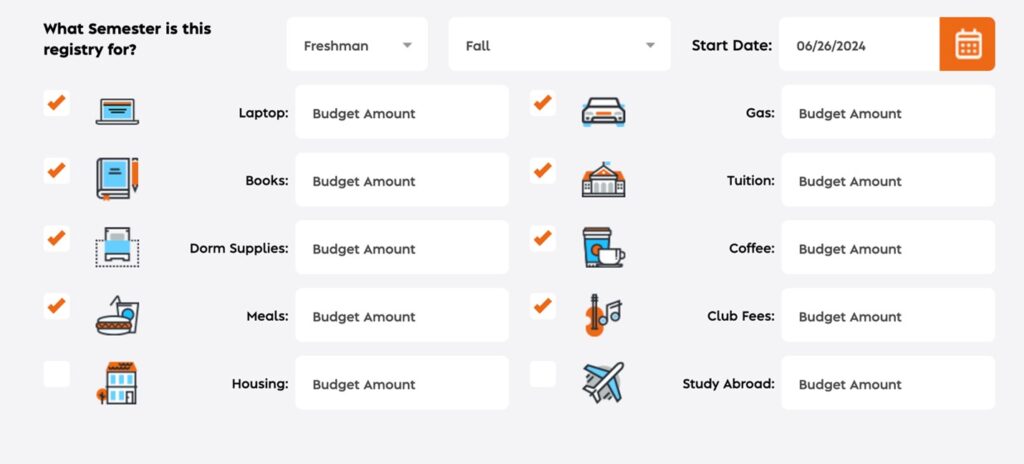
The college decision is one of the most significant choices in a young adult’s life, and for many high school seniors, it comes with a fair share of excitement and stress. With so many options, varying deadlines, and a slew of factors to consider, it can be overwhelming to know when the right time is to make the final decision. The process can take months of research, visits, and thoughtful reflection, and it’s important to recognize the critical junctures where you should pause, evaluate, and ultimately decide. But when exactly should you make the call? Let’s break it down.
The College Application Timeline: A Precursor to Decision-Making
Understanding when to make the college decision largely hinges on the application process and the deadlines associated with it. Generally, most college decisions are made in the spring of a student’s senior year, but various timelines might influence how you approach the decision.
Early Decision/Early Action
For students who are eager to secure a place at their top choice school, early decision (ED) or early action (EA) options might seem attractive. These typically have deadlines in November, and if accepted, you commit to attending the school (ED) or get an early response but aren’t required to commit right away (EA). For many students, this provides peace of mind early in the senior year, and the acceptance letters for early decision applicants often arrive around December.
However, it’s essential to note that early decision can be binding—meaning you must attend the college if accepted—so this option should be carefully considered. If you apply to a “top college in the USA” under early decision, make sure you are 100% certain that this is your choice before committing.
Regular Decision
For students who don’t apply early, regular decision offers more time to explore colleges and reflect on your options. Most regular application deadlines fall between January and February, giving you the opportunity to visit schools, weigh offers, and consider factors like financial aid and campus culture before finalizing your choice. These decisions generally come in March or April.
Once regular decision results arrive, it’s time to assess your options carefully. By this point, you will have received offers from various schools, which means that the time to make the final decision is drawing near. This is when the heavy lifting of evaluating your choices really begins.
Factors to Consider Before Making the Decision
The decision to choose a college is a personal one, and there are several factors that may affect when you feel ready to make the leap. Let’s consider what to look at before pulling the trigger.
Fit and Lifestyle
A college is not just a place to study—it’s where you will live for four years, grow as an individual, and build lasting memories. The lifestyle that comes with attending a specific college is crucial to your well-being. A school that offers an academic program in your field of interest is great, but how well it aligns with your personal values, interests, and social life is equally important. For example, if you’re someone who thrives in a tight-knit community, you might be drawn to smaller colleges, whereas others might prefer the bustling energy of a large university.
Consider visiting the campus again or researching the social opportunities and extracurriculars available. If you are unsure, speak with current students and professors, as they can provide valuable insight into the atmosphere and culture of the college.
Financial Aid
The cost of college is another key factor in the decision-making process. Once you receive your financial aid package, compare the offers from different schools to see which one fits your budget best. While it might be tempting to choose a prestigious university or one of the top colleges in the USA, the reality is that your financial aid package could make a major difference in whether or not it’s affordable.
It’s also worth considering the overall cost of living, such as housing and transportation. A college might offer a great deal academically but may not fit your budget when factoring in these additional expenses.

Career Path and Opportunities
For many students, the college decision comes down to future career prospects. What kind of internships, career services, and job placement assistance does each school offer? A strong alumni network and connections to various industries can be an important deciding factor, especially if you’re looking at competitive fields like engineering, business, or the arts.
When making your decision, it’s also worth considering the college’s location and how it aligns with your career goals. Does the college have strong ties to businesses or organizations in the city or region where you hope to work after graduation?
The Process
The college search process should not only focus on finding the best academic match but also on how you feel about each college’s campus, community, and support systems. It’s helpful to create a list of your top priorities and use that as a guide throughout your decision-making journey. This list can include factors like academics, extracurricular activities, financial aid, location, and student satisfaction. Once you narrow down your choices, the decision should be made with clarity.
Gut Feeling
Sometimes, your intuition is a valuable indicator of where you should attend. After all the research, visits, and discussions, listen to your gut feeling about the colleges you’re considering. Do you feel excited and motivated about the idea of attending a particular school? Or do you feel uncertain or uncomfortable? Trusting your instincts is often the key to making the right choice.
The Final Decision: When to Commit
Once you’ve gathered all the information, it’s time to make the decision. Typically, students have until May 1st to accept an offer and submit their deposit, which is known as National College Decision Day. At this point, you should have a clear understanding of your top choice, as well as any other options you’re considering.
Making the college decision is a mix of logic and emotion. As you weigh the pros and cons, consider not only academic rankings and financial factors but also how the school feels to you personally. Is it a place where you can see yourself thriving for four years? Will it help you grow both intellectually and personally?
Conclusion
Choosing the right college is a major life decision that requires careful thought, research, and consideration. When exploring your options, make sure you take the time to thoroughly assess your options before making the final decision. From the application deadlines to the campus culture and financial aid packages, the college decision is a process that should not be rushed.
By giving yourself enough time to research and reflect, you’ll be in a better position to make an informed and confident choice that aligns with your goals, values, and future ambitions. Remember, the decision you make today will set the stage for the next chapter of your life, so take your time and trust the process.
Introducing The Student Registry (TSR), an innovative tech platform designed to help students raise money for each semester of college from their family, friends, and community. TSR was created by Alex Boylan and Lisa Hennessy, the founders of The College Tour TV series. While filming 185 episodes across the country, they met thousands of students and learned that the financial side of the college journey is often the most challenging.
In response, they created The Student Registry to make funding college easier. The platform allows students to create personalized budget wish lists for each semester. TSR then offers a secure and user-friendly way to fundraise, allowing students to gain support from friends, family, and the broader community.
Here are the 4 easy steps for students to start raising money (tax free) using The Student Registry
- Create a Profile
• See example of a student profile here: https://www.thestudentregistry.com/student/cameron-anderson-54/fall-2024 - Then easily build their semester registry by choosing from our pre-built budget items. This is a great way for students to learn about how to budget.

3. Share their profile with friends, family and their community.
4. Receive up to $10,000 in donations (per semester) to help cover college expenses.
TSR also offers on the site videos to help students make a budget each semester and tips on how to fundraise.
TSR uses Stripe for secure banking and payment processing. Trusted by millions of businesses worldwide, including PayPal, GoFundMe, Google, Shopify, Lyft, and Amazon, Stripe ensures top-tier security with advanced encryption and fraud prevention, protecting both businesses and their customers at every transaction.

Choosing a field of study is one of the most pivotal decisions students make when embarking on their higher education journey. With more career options, rapidly evolving industries, and new educational paths emerging, selecting the course of study that aligns with personal interests, skills, and future goals is more important than ever. In this article, we’ll explore the latest trends for students in 2025, including how to choose a major, factors to consider, and how to find the right college to fit your unique needs.
The Evolving Landscape
The landscape of higher education is constantly changing, driven by technological advancements, global economic shifts, and changing student expectations. Students and families now have access to a broader range of options, both traditional and non-traditional. Online learning, hybrid models, and career-focused programs have reshaped how students approach college education.
According to the National Center for Education Statistics, enrollment in higher education continues to climb, with more students seeking flexible programs that allow for early career exploration and workforce readiness. From well-known universities to specialized institutions, students have a wealth of options to choose from in order to tailor their academic journey to their personal and professional aspirations.
Academic Concentration
Selecting an appropriate educational track can feel overwhelming due to the sheer number of options available and the rapid pace at which new fields of study emerge. Here are some key trends and strategies to help guide students through this critical decision-making process:
Self-Assessment and Exploration
The first step is understanding your own interests, strengths, and values. Self-assessment tools and personality tests, such as the Myers-Briggs Type Indicator (MBTI), StrengthsFinder, or the Strong Interest Inventory, are excellent resources for exploring career paths that align with your skills and passions.
Many colleges now offer career counseling services that help students identify their strengths and suggest potential majors based on aptitude and personal preferences.
Research Emerging Fields
Industries such as artificial intelligence, sustainability, data science, and healthcare are rapidly expanding, creating new opportunities and demand for specialized skills. By keeping an eye on job market trends and growth sectors, students can select majors that align with industry demand. Emerging fields like cybersecurity, environmental science, and business analytics are not only growing but also offering a high return on investment in terms of career advancement and earning potential.
Websites such as the Bureau of Labor Statistics (BLS) and online databases like LinkedIn Learning or Glassdoor provide excellent insights into emerging industries and the skills employers are looking for.
Interdisciplinary Studies
One of the most significant trends in college education is the rise of interdisciplinary studies. More colleges are offering majors that allow students to combine subjects, such as business and environmental science, psychology and public health, or computer science and art. These hybrid programs are designed to prepare students to tackle complex, real-world problems by integrating knowledge from multiple fields.
Interdisciplinary programs appeal to students who enjoy exploring diverse interests and want to remain flexible as they enter the workforce.

Experiential Learning
In 2025, colleges are placing a growing emphasis on experiential learning. Programs that offer internships, co-op placements, research opportunities, service learning, and study abroad experiences are becoming increasingly valuable in helping students build practical skills. Experiential learning allows students to apply their classroom knowledge to real-world situations, which helps solidify their career interests and make informed decisions about their future.
Top colleges in the USA that offer strong internship programs with established partners in industries such as tech, healthcare, finance, and education are highly sought after. Not only do these experiences provide practical skills, but they also often lead to job offers post-graduation.
Liberal Arts with Career-Focused Focus
The traditional liberal arts education is evolving to include more career-focused majors and minors that provide essential skills such as communication, critical thinking, and problem-solving. For example, students studying English or History may also explore minors in data analysis, digital marketing, or business.
Colleges are now integrating career readiness into liberal arts curricula, offering courses that develop essential transferable skills like adaptability, teamwork, and analytical thinking.
Finding the Best Fit
Once a major has been chosen, the next step is finding the best colleges and universities that align with both academic interests and personal preferences. Students have a wealth of choices, ranging from well-known Ivy League institutions to smaller liberal arts colleges and specialized vocational schools.
These institutions not only offer strong academic programs but also provide access to influential networks, internships, and cutting-edge research opportunities. However, these top-tier schools may not be the best fit for every student’s budget, career goals, or personal preferences.
Affordable and Accessible Colleges
In recent years, affordability has become a key concern for many students. Public universities such as the University of California system and the State University of New York (SUNY) system offer excellent education at a fraction of the cost of private schools.
Additionally, emerging colleges with strong programs and lower costs, often offering merit-based scholarships and financial aid, have gained attention. Institutions like Berea College, Earlham College, and Rice University have become highly desirable for their affordability and academic excellence.
Conclusion
The college search is no easy task. By exploring personal interests, industry trends, and leveraging experiential learning opportunities, students can make informed decisions that shape their academic and professional futures. Additionally, understanding trends in college affordability, career outcomes, and specialized programs allows students to select colleges that align with their long-term goals.
In 2025, students are not limited by traditional options alone. Online programs, interdisciplinary studies, and career-focused curricula offer innovative pathways to higher education success. By considering these trends and making intentional choices, students can create a well-rounded, fulfilling academic experience that supports both personal and professional aspirations.

As the holiday season approaches, high school students and their families are likely starting to feel the excitement of upcoming time off. While this season often comes with celebrations, family gatherings, and much-needed relaxation, it’s also the perfect opportunity to ramp up your college search process. The time off from school can provide a much-needed break from the usual academic pressures, but it can also serve as an ideal time to make significant progress on your journey to finding the right college.
If you’re in the midst of applications, or just starting to think about your options, the holidays can be a key moment to focus on narrowing down choices, preparing applications, and getting organized for the next steps. Here’s how you can make the most of your holiday in your search for higher education options.
Start by Reflecting on Your College Criteria
Before diving into the overwhelming sea of brochures, websites, and campus visits, take a step back and consider what you want out of your education experience. The holidays are a great time to reflect on the following:
Academic Interests: What subjects or majors excite you the most? Are you interested in exploring a particular field of study, or do you want to keep your options open? Reflecting on your academic passions can help you target colleges that offer strong programs in your areas of interest.
Campus Culture: What kind of environment do you want to be a part of? Do you want a large university or a small liberal arts college? Are you interested in a specific geographic location, or do you prefer to keep your options broad? Consider things like the school’s social scene, student organizations, and overall vibe.
Extracurriculars: Does the college offer sports, clubs, volunteer opportunities, or other extracurricular activities you want to get involved in? College is not just about academics—it’s about finding a place where you can grow as a person.
Financial Considerations: Education can be expensive, so make sure to think about your budget. Do you need financial aid? Is the cost of tuition and living in certain areas a concern? Establishing your financial parameters early on will help narrow down your list.
Taking the time to evaluate your personal preferences and needs will make the next steps of your college selection process much more focused and efficient.
Research Colleges and Create a List
Once you’ve defined your criteria, use your holiday break to dive deep into researching colleges that meet your needs. With all the free time over the break, you can give your full attention to exploring potential schools.
Visit College Websites: Start by looking at official college websites to get a feel for what they offer. Pay attention to academic programs, campus life, and admissions requirements. Don’t just skim the site—take the time to explore and dig deeper into the specific majors and minors you’re interested in.
Look at Reviews: Look for honest feedback about campus culture, professors, and general student life.
Attend Virtual College Fairs: Many universities host virtual events, tours, and open houses, especially during the holiday season when prospective students have more time to engage. These virtual events are an easy way to get an overview of a college without leaving your home.
By dedicating some of your free time to research, you can compile a list of schools that align with your needs and values.

Prepare for College Visits (In-Person or Virtual)
College visits are one of the most valuable steps in the research process. Whether you’re visiting a school in person or participating in a virtual tour, now is the time to plan your visits.
In-Person Visits: If you’re able to visit schools over the break, make it a point to check out campuses. When visiting in person, take a tour, talk to students, and explore the area around the campus. You’ll get a real sense of what the campus feels like and whether it’s a place where you could imagine yourself spending the next four years.
Virtual Visits: If in-person visits aren’t feasible, many colleges offer detailed virtual tours. These online experiences allow you to explore the campus, listen to presentations from staff, and ask questions, all from the comfort of your home.
Plan Ahead: If you’re visiting multiple colleges, be sure to plan your itinerary ahead of time to make the most of your trip. Reach out to admissions offices to schedule tours and meetings with faculty or students if possible.
Visiting campuses will give you the information you need to determine if a school is a good fit, and the holidays are the perfect time to start making those arrangements.
Start Drafting Your Application Essays
For many students, the application essay is the most daunting part of the process. However, the break before the New Year is a great time to start drafting your essays. You’ll have more time to reflect on your experiences, research the schools you’re applying to, and write thoughtful responses.
Brainstorm Ideas: Take the time to brainstorm potential essay topics. Reflect on moments that have shaped you, lessons learned, and what you want to contribute to the college community. Your essay should offer insight into who you are beyond your grades and extracurriculars.
Write Multiple Drafts: Don’t aim for perfection on your first draft. Instead, focus on getting your ideas down, and then revisit them with a fresh perspective. Having extra time during the holidays allows you to take a break between drafts and return to your work with fresh eyes.
Get Feedback: Once you have a solid draft, share it with a trusted teacher, mentor, or family member to get feedback. Colleges want to see authenticity, so make sure your essay truly represents who you are.
Starting your essays early can take a lot of pressure off you as deadlines approach, and you’ll feel much more prepared when the time comes to submit your applications.
Organize Your Application Process
The holidays are also a great time to get organized and make sure you’re keeping track of deadlines, required documents, and other application requirements.
Create a Calendar: Make a calendar with all your application deadlines and other important dates. Keep track of when each school’s application is due, and what materials you need to submit.
Set Up a College Binder or Digital Folder: Create a system for organizing your application materials. Whether physical or digital, keeping track of your resumes, transcripts, recommendation letters, and essays will keep you on track.
Stay Ahead of Financial Aid: Many schools have specific financial aid deadlines, so don’t forget to start working on your FAFSA or scholarship applications. The holidays provide the perfect time to gather all the information you need to complete these forms.
Conclusion
The holiday season is an ideal time to make significant progress in your college decision making process. By using your time off to research schools, plan visits, draft your essays, and get organized, you’ll set yourself up for success in the New Year. The discovery process can be overwhelming, but by breaking it down into manageable steps and dedicating time during the holidays, you’ll feel confident and prepared as you approach application deadlines. Use the holiday season as an opportunity to focus on your future and take a step closer to finding the college that’s the perfect fit for you!

As the midpoint of the semester approaches, it’s an important time for college students to take stock of their progress and prepare for the second half of the academic term. The halfway point often brings with it a range of emotions—excitement, stress, and even exhaustion. Whether you’re thriving or struggling, this is the perfect time to evaluate how things have gone so far and make adjustments to ensure you finish the semester strong.
The following article highlights what to expect as you approach the halfway mark, along with practical strategies to help you prepare for the rest of the year.
Midterms and Increased Academic Pressure
One of the most pivotal moments of the halfway point in the semester is the onset of midterm exams and projects. For students, midterms can act as a reality check, revealing just how well they’ve absorbed the material from the first half of the course. Since midterms often play a major role in determining your final grade, especially in competitive environments like the top colleges in the USA, it’s essential to tackle them with careful preparation and a focused mindset.
Start studying early. Cramming the night before is rarely an effective strategy, so give yourself ample time to review your notes, revisit key concepts, and practice past exams if possible.
Break it down. Don’t try to tackle everything at once. Break your study sessions into manageable chunks, focusing on one subject at a time to avoid overwhelm.
Ask for help. If you’re struggling with certain material, reach out to your professors, teaching assistants, or classmates. Study groups can also be a helpful way to reinforce your understanding and share ideas.
Managing Time and Prioritizing Tasks
By this point, you’ve likely settled into some sort of routine—whether it’s been productive or more chaotic. As you reach the halfway mark, it’s crucial to assess how well you’re managing your time and whether you’re effectively prioritizing your tasks. This becomes even more crucial during the college search, as students often find themselves balancing a demanding mix of coursework, extracurricular activities, part-time jobs, and personal responsibilities. Without strong time management skills, handling these competing priorities can easily become overwhelming. Without proper time management, juggling these commitments can quickly become overwhelming.
Revisit your schedule. Take a close look at your current routine and see where you can make adjustments. Are there areas where you’re wasting time? Are you leaving assignments until the last minute? Consider creating a more structured daily or weekly schedule to keep yourself on track.
Prioritize tasks. Not all tasks are equally important. Focus on what’s urgent and significant, such as upcoming exams or project deadlines, and leave less critical tasks for later.
Balance work and self-care. It’s easy to get caught up in academic demands, but make sure you’re also taking care of your mental and physical health. Schedule regular breaks, exercise, and downtime to recharge.
Reassessing Goals and Adjusting Course
At the beginning of the semester, you likely set academic and personal goals—whether that was achieving a certain GPA, improving in a particular subject, or getting involved in extracurricular activities. The halfway point is a good time to reassess those goals and determine whether you’re on track or need to make adjustments.
Evaluate your progress. Reflect on how you’ve been performing in your classes and other areas of life. Are you meeting your goals, or do you need to make changes?
Adjust expectations if needed. If you’ve been struggling in a class or have taken on too many responsibilities, it’s okay to adjust your goals. Set realistic expectations that will allow you to succeed without burning out.
Stay motivated. Remind yourself of why you set these goals in the first place. Whether it’s personal growth, career aspirations, or a desire to make the most of your college experience, staying connected to your “why” will help you stay focused.

Building Relationships and Networking
By this point in the semester, you’ve likely formed some relationships with classmates, professors, and perhaps members of clubs or organizations. These relationships can play a vital role in your academic success and overall college experience. Networking with peers and faculty can open doors for academic support, internships, job opportunities, and long-lasting friendships.
Strengthen Connections
One of the most effective ways to enhance your college experience is to strengthen your connections with both professors and peers. Don’t hesitate to attend office hours, participate in study groups, or engage in class discussions. These opportunities not only allow you to seek clarification on course materials but also enable you to build rapport with your instructors. Establishing a positive relationship with your professors can lead to invaluable support for the remainder of the semester, whether it’s through personalized feedback, guidance on academic projects, or even potential recommendations for future endeavors. Additionally, fostering connections with your classmates can create a supportive network that enhances your learning experience. Collaborating with peers in study groups can also provide new perspectives on the material and help you solidify your understanding.
Join or Stay Involved in Clubs
If you haven’t already explored the various clubs and organizations on campus, now is the perfect time to dive in. Getting involved in extracurricular activities can significantly enrich your college experience and help you form lasting friendships. Look for opportunities that align with your personal interests or career aspirations, as these can offer both enjoyment and valuable networking experiences. If you’re already a member of a club, make it a priority to continue attending meetings and participating in events. Regular engagement will not only foster deeper connections with fellow members but also provide you with opportunities to develop new skills, gain leadership experience, and enhance your resume. The relationships and experiences you build through clubs can be incredibly rewarding and may also open doors to future opportunities.
Start Thinking About Internships
As you approach the end of your academic journey, it’s crucial to start thinking about internship opportunities or job openings for the next semester or summer break. Internships are an excellent way to gain practical experience in your field of study, allowing you to apply your classroom knowledge in real-world settings. Now is the time to explore options that align with your career goals. Your professors and academic advisors can be valuable resources in this process, as they often have connections within the industry and can provide leads on internship openings. Additionally, they can offer guidance on crafting your resume and preparing for interviews. Starting your internship search early will give you a competitive edge and help you make informed decisions about your career path as you move forward in your studies.

Mental Health and Stress Management
The halfway point of the semester can be a stressful time as academic pressures ramp up and the novelty of the new term begins to wear off. Many students experience burnout, anxiety, or feeling overwhelmed during this time. Recognizing the importance of mental health is key to staying resilient.
Most colleges offer mental health resources, including counseling services, stress-relief workshops, or wellness events. Don’t hesitate to take advantage of these offerings if you need them. Furthermore, mindfulness techniques like deep breathing, meditation, or journaling can help reduce stress and improve focus. Even a few minutes a day can make a big difference.
Isolation can exacerbate stress, so make sure to stay connected with friends, family, or support networks. Sometimes, just talking about what you’re going through can relieve pressure.
Preparing for Finals and the End of the Semester
It might seem far away, but the second half of the semester will fly by faster than you think. Before you know it, finals will be looming, and end-of-semester projects will be due. Now is the time to start laying the groundwork for a smooth finish.
Make sure your class notes, assignments, and study materials are organized and accessible. This will make studying for finals much easier down the line.
Set milestones for projects. If you have long-term projects or research papers due at the end of the semester, break them down into smaller tasks and set deadlines for each milestone.
Stay proactive! Don’t wait until the last minute to seek help or clarification from professors if you’re struggling with course material. Staying proactive can prevent unnecessary stress later on.
Conclusion
As you approach the halfway point of the semester, it’s time to pause, reflect, and adjust your approach to ensure a successful finish. Whether it’s preparing for midterms, refining your goals, managing stress, or building relationships, taking a proactive approach now will set you up for success in the second half of the semester. With focus and determination, you can navigate the challenges ahead and finish the year strong.

As the leaves begin to change and students settle into their routines, the fall semester marks a fresh start for many college-goers. From academic trends to lifestyle shifts, every new semester brings its own unique set of challenges and opportunities. As we dive into the heart of the school year, staying informed about emerging trends can help students stay ahead academically, socially, and personally. Here’s an in-depth look at the key trends shaping the fall semester, along with some tips for how make the most of them.
Hybrid and Flexible Learning Models
One of the most popular trends this fall, especially for students engaged in their college search, is the ongoing evolution of hybrid and flexible learning models. While many campuses have resumed in-person classes, online and hybrid formats remain widespread. This shift provides students with greater flexibility in managing their schedules, but it also demands strong self-discipline and time management skills.
Tips for Success:
Stay organized: Use digital planners or apps like Google Calendar to keep track of both online and in-person classes.
Engage in virtual classrooms: If part of your course is online, treat it with the same seriousness as in-person lectures. Participate in discussions, attend office hours, and complete assignments on time.
Balance your time: Avoid procrastination by setting aside specific blocks of time each day for study sessions, ensuring a consistent routine.
Sustainability and Eco-Conscious Living
As environmental concerns grow, sustainability is becoming a major focus on college campuses. More students are getting involved in eco-friendly initiatives like reducing waste, supporting sustainable brands, and advocating for greener practices on campus. Colleges are also introducing innovative programs that address climate change and promote sustainability.
Tips for Success:
Adopt sustainable habits: Opt for reusable water bottles, avoid single-use plastics, and recycle whenever possible. Even slight changes can have a big impact over time.
Participate in campus sustainability initiatives: Many schools offer clubs and programs focused on environmental action. Joining one can provide networking opportunities and help you make a positive impact.
Learn about eco-friendly careers: With sustainability becoming a key focus in industries ranging from fashion to finance, consider how your major could align with eco-conscious career paths.
Mental Health Awareness and Resources
Students attending some of the top colleges in the USA are increasingly prioritizing mental health, and universities are responding by expanding their mental health services. From counseling centers to peer support groups, these institutions are placing a stronger focus on emotional well-being and self-care. Recognizing the importance of balancing academic responsibilities with personal life is becoming essential for managing the stress of college life effectively.
Tips for Success:
Use available resources: Take advantage of on-campus mental health services, such as counseling sessions, stress management workshops, or mental health hotlines.
Practice mindfulness: Incorporate relaxation techniques like deep breathing, meditation, or yoga into your routine to manage stress and anxiety.
Stay connected: Keep in touch with friends and family. Having a support system, both on and off-campus, can make a dramatic difference when you’re feeling overwhelmed.

Emphasis on Financial Literacy
With rising tuition costs and student debt remaining a major concern, financial literacy is becoming a priority for college students. Many institutions are offering workshops, courses, and resources to help students learn how to manage their finances, budget effectively, and make informed decisions about loans, credit, and savings.
Tips for Success:
Track your spending: Use budgeting apps like Mint or YNAB to monitor your expenses and savings. Knowing where your money goes can help you make smarter financial decisions.
Attend financial literacy workshops: Many campuses offer workshops on topics like managing student loans, building credit, and saving for the future. Attending these sessions can give you important practical skills that last a lifetime.
Explore scholarships and grants: Don’t overlook the opportunity to apply for scholarships, grants, and other forms of financial aid that can alleviate the burden of tuition and living expenses.
Technology-Enhanced Learning Tools
Technology is playing an ever-growing role in education, and the fall semester is no exception. Students are increasingly relying on apps, software, and platforms to enhance their study habits, organize notes, and collaborate with classmates. From AI-powered study assistants to virtual labs, these tools are transforming how students learn.
Tips for Success:
Explore new study tools: Platforms like Quizlet, Grammarly, and Evernote can boost productivity and help you study smarter, not harder.
Use collaboration tools: Group projects can be streamlined with apps like Slack, Microsoft Teams, and Google Docs, allowing you to work more efficiently with your peers.
Embrace AI learning assistants: AI-powered tools, such as chatbots or tutoring apps, can provide personalized study tips, homework help, and test prep.
Career Development and Networking
The fall semester is also prime time for career development. As students prepare for internships and post-graduation plans, there’s a growing focus on building networks and gaining practical experience. College career centers are ramping up offerings like career fairs, resume workshops, and mock interviews, while students are exploring internships, co-op programs, and job shadowing opportunities.
Tips for Success:
Attend career fairs: Don’t miss your school’s career fairs and networking events. These are great opportunities to meet potential employers and explore different career paths.
Update your resume and LinkedIn: Keep your resume and LinkedIn profile up to date, and tailor them to highlight skills relevant to your desired field.
Seek internships: Gaining real-world experience through internships or part-time jobs can provide a valuable edge when entering the workforce.
Conclusion
The fall semester brings a wave of trends that shape the college experience, from academic shifts to lifestyle changes. Staying on top of these trends allows students to optimize their education, well-being, and career development. Whether you’re navigating flexible learning models or embracing sustainability on campus, being aware of these trends will help you make the most of your college journey.

Choosing the right college and application strategy can significantly impact any student’s academic journey and future career prospects. Among the decisions prospective students face, Early Decision (ED) and Regular Decision (RD) are two primary options that merit careful consideration. This article delves into the nuances of Early Decision vs. Regular Decision, exploring their differences and benefits along with the factors to weigh when making embarking on the college search.
Understanding Early Decision
Early Decision is a college application process that allows students to apply to their top-choice school early in their senior year, typically by November 1st or 15th, with a binding commitment to enroll if accepted. Key aspects of Early Decision include:
Binding Commitment: Students who apply ED commit to attending the college if admitted, withdrawing applications from other institutions upon acceptance.
Advantages
Higher Acceptance Rates: Colleges often admit a higher percentage of Early Decision applicants compared to Regular Decision applicants.
Demonstrated Interest: Applying ED demonstrates a high level of interest in the college, which can positively impact admission chances.
Early Decision Advantage: Some colleges may favor ED applicants, considering them more likely to enroll and contribute positively to campus life.
Considerations
Financial Commitment: ED applicants must carefully evaluate financial aid packages, as ED agreements are binding, and comparison of aid offers is limited.
Limited Choice: By committing early, students forego the opportunity to compare multiple offers of admission and financial aid packages.
Exploring Regular Decision
Regular Decision is the traditional college application process where students apply by January 1st or later, receive decisions by March or April, and have until May 1st to confirm enrollment. Key aspects of Regular Decision include:
Non-Binding: Unlike ED, RD applications are non-binding, allowing students to compare offers of admission, financial aid packages, and scholarship opportunities from multiple colleges.
Flexibility: RD applicants have more time to finalize their college lists, explore financial aid options, and make informed decisions based on various offers.
Advantages
Comparison: RD applicants can weigh multiple college offers, financial aid packages, and scholarship opportunities before making a final decision.
Financial Considerations: RD allows families to evaluate financial aid awards and determine the best financial fit for their circumstances.
Considerations
Competitiveness: Admission rates may be lower for RD applicants compared to ED applicants, as colleges often fill a significant portion of their freshman class through early admissions.
Timing: Waiting until spring for admission decisions can be stressful for some students, particularly if they have strong preferences for specific colleges.

Factors to Consider
When deciding between Early Decision and Regular Decision, several factors warrant careful consideration:
College Fit: Assessing how well a college aligns with academic interests, career goals, campus culture, and overall fit is crucial when considering applications to top colleges in the USA.
Financial Aid: Understand the implications of applying ED, as financial aid packages are binding and may limit opportunities for comparison.
Admission Statistics: Research the college’s historical acceptance rates for ED and RD applicants to gauge competitiveness.
Personal Readiness: Consider personal and academic readiness to commit to a college early versus waiting for RD decisions and exploring multiple options.
Making an Informed Decision
To make an informed decision between Early Decision and Regular Decision:
Research Colleges: Explore college websites, visit campuses if possible, and engage with current students to assess your options and preferences.
Consult Advisors: Seek guidance from high school counselors, teachers, and admissions professionals who can provide insights into the application process and college choices.
Evaluate Goals: Reflect on academic aspirations, career objectives, and personal preferences to align them with the best-fit college environment.
Conclusion
Choosing between Early Decision and Regular Decision is a significant decision in the college application process, impacting admission chances, financial commitments, and overall satisfaction with the college experience. Whether opting for the certainty and commitment of Early Decision or the flexibility and comparison opportunities of Regular Decision, students should weigh their options thoughtfully, considering academic goals, personal readiness, and financial implications. By understanding the differences between ED and RD and evaluating individual priorities, students can navigate the college application journey with confidence and make a choice that sets the stage for a successful academic and personal future.

The college interview is a crucial opportunity for prospective students to showcase their personality, accomplishments, and aspirations beyond what is captured in their application. It provides admissions officers with a chance to see the person behind the grades and test scores, making it an essential component of the college admissions process. This article explores the nuances of the college interview, offering insights and tips to help students make a lasting impression with their college search.
Understanding the Interview Process
The college interview is typically conducted by an admissions officer, alumni, or current student and serves several purposes:
Assessing Fit: Admissions interviews help colleges gauge whether a student is a good fit for their institution academically, socially, and culturally.
Personalizing the Application: Interviews provide a personal dimension to the application, allowing students to elaborate on their experiences, interests, and motivations.
Demonstrating Interest: Participating in an interview demonstrates a genuine interest in the college, which can positively impact the admissions decision.
Before the Interview
Preparation is key to a successful college interview. Here’s how to prepare effectively:
Research the College: Get to know the college’s mission, academic programs, campus culture, and any recent updates or changes. Understanding these aspects shows your genuine interest in the institution. For comprehensive information all in one place, The College Tour is an excellent resource to help you explore and gather detailed information about various schools.
Reflect on Your Goals: Clarify your academic and career goals, as well as why you are interested in attending this particular college. Reflect on your strengths, accomplishments, and experiences that align with the college’s values and offerings.
Prepare Questions: Prepare thoughtful questions about the college and its programs. This shows your proactive approach to learning more about the institution and its opportunities.
During the Interview
During the interview, focus on presenting yourself authentically while conveying your enthusiasm and preparedness:
Dress Appropriately: Dress in neat, professional attire that reflects respect for the occasion and the seriousness of your intentions.
Body Language: Maintain good posture, make eye contact, and offer a firm handshake. These non-verbal cues convey confidence and professionalism.
Express Yourself Clearly: Articulate your thoughts clearly and concisely. Be prepared to discuss your academic interests, extracurricular activities, achievements, and goals for the future.
Highlight Your Strengths: Emphasize your unique qualities, accomplishments, and contributions to your school or community. Be sure to use specific examples that illustrate your points thoroughly.
Common Interview Questions
Be ready to respond to common interview questions at some of the top colleges in the USA, such as:
- Tell me about yourself.
- Why are you interested in our college?
- What are your academic strengths?
- How do you handle challenges or setbacks?
- What do you hope to contribute to our campus community?
Practice answering these questions beforehand to feel more confident and articulate during the interview.

Making a Lasting Impression
To leave a positive and lasting impression on the interviewer:
Show Enthusiasm: Demonstrate genuine enthusiasm for the college and its programs. Express why you are excited about the possibility of attending.
Be Authentic: Be yourself and let your personality shine through. Authenticity resonates with interviewers and makes a memorable impression.
Follow-Up: Send a thank-you note or email to your interviewer within 24 hours of the interview. Express your gratitude for their time and reiterate your interest in the college.
Handling Difficult Questions
Be prepared to address challenging questions, such as gaps in your academic record, weaknesses, or controversial topics. Approach these questions with honesty, tact, and a focus on personal growth and learning.
Final Thoughts
The college interview is an opportunity to demonstrate your readiness for college life, your academic potential, and your personal qualities that make you a valuable addition to the campus community. By preparing thoroughly, presenting yourself confidently, and engaging authentically with your interviewer, you can make a strong and positive impression that enhances your college application. Remember, the interview is not just about showcasing your qualifications; it’s about showing how you will contribute to and thrive within the college environment.
Additional Resources
For more tips on college interviews and preparing for the admissions process, consider consulting resources from reputable organizations such as:
National Association for College Admission Counseling (NACAC)
These resources offer valuable insights, mock interview tips, and strategies to help you excel in your college interviews and make informed decisions about your future academic endeavors.

Navigating the complexities of college and career planning can be daunting for students and parents alike. From choosing the right academic path to exploring career options, the journey requires careful consideration and informed decision-making. The following article explores the invaluable role of counselors in the college search process, highlighting how their expertise can guide students towards successful futures.
Understanding the Counselor’s Role
Counselors in educational settings serve as trusted advisors, equipped with the knowledge and resources to assist students in achieving their academic and career goals. Whether in high schools, colleges, or private counseling services, these professionals offer personalized guidance tailored to individual needs.
Academic Planning
One of the primary responsibilities of a counselor is to help students navigate their academic journey effectively. This includes:
- Course Selection: Advising on appropriate courses based on students’ interests, abilities, and future career aspirations.
- GPA Management: Providing strategies to maintain or improve academic performance, which is crucial for college admissions and scholarship opportunities.
- Testing Strategies: Guidance on standardized tests like the SAT or ACT, including preparation tips and understanding score reports.
College Admissions
Counselors play a pivotal role in the college application process:
- Application Guidance: Assisting students with completing applications, ensuring all necessary materials are submitted on time.
- Essay and Resume Support: Offering feedback on personal statements, essays, and resumes to highlight students’ strengths and achievements effectively.
- Scholarship and Financial Aid: Providing information on scholarship opportunities and assisting with financial aid applications.
Career Exploration
Helping students explore potential career paths is another essential aspect of counseling:
- Interest Inventories: Administering career assessments to identify students’ interests, skills, and values, which are integral to making informed career choices.
- Information on Careers: Providing resources and information about various professions, including job outlook, required education, and potential salary ranges.
- Internship and Job Opportunities: Connecting students with internships, job shadowing opportunities, or career fairs to gain practical experience and insight into different industries.
How to Maximize Your Counselor’s Expertise
Initiate Regular Meetings
Establishing a consistent meeting schedule with your counselor allows for ongoing support and guidance throughout your academic journey. Use these meetings to discuss goals, review progress, and address any concerns or questions you may have.
Be Prepared and Proactive
Come to counseling sessions prepared with questions and topics you wish to discuss. Take advantage of your counselor’s expertise by seeking advice on course selections, career pathways, and extracurricular activities that align with your interests and goals.

Utilize Resources and Workshops
Counselors often host workshops on topics such as American university tours, applications, financial aid, and career exploration. Attend these sessions to gain valuable insights and stay informed about important deadlines and opportunities.
Develop a Personalized Plan
Work with your counselor to create a personalized academic and career plan that reflects your strengths, interests, and long-term objectives. Regularly review and adjust the plan as needed based on your evolving goals and experiences.
The Importance of Early Planning
Early engagement with a counselor can significantly impact your college and career readiness:
- Exploring Options: Starting early allows ample time to explore different academic programs and career paths, ensuring informed decision-making.
- Building Skills: Counselors can recommend enrichment activities, summer programs, or volunteer opportunities that enhance your skills and bolster your college applications.
- Managing Stress: By addressing challenges early, such as academic struggles or uncertainty about future plans, counselors help mitigate stress and foster a proactive approach to problem-solving.
Conclusion
In conclusion, counselors play a crucial role in guiding students through the complexities of college and career planning. Their expertise extends beyond academic advice to encompass personal development, goal setting, and navigating the transition from high school to higher education or the workforce.
By leveraging your counselor’s expertise, you gain access to a wealth of resources, support, and insights tailored to your unique needs and aspirations. Whether you are exploring college options, preparing for standardized tests, or considering career paths, your counselor is there to help you make informed decisions and achieve success.
Take advantage of this invaluable resource by initiating regular meetings, actively participating in workshops, and collaborating on a personalized plan that aligns with your academic and career goals. With your counselor’s guidance, you can confidently navigate the path ahead and embark on a fulfilling journey towards your future endeavors.

As high school seniors prepare to take the next big step in their academic journeys, crafting a standout college application becomes paramount. The college search process can be both exciting and daunting, requiring careful planning, organization, and attention to detail when submitting an application. The following article highlights essential dos and don’ts to help students present themselves effectively to their dream colleges.
Dos
Start Early
Begin the application process early to avoid last-minute stress and ensure all components are completed thoroughly. Give yourself ample time to brainstorm, draft essays, gather recommendations, and review application requirements for each college.
Research Colleges Thoroughly
American university tours can help prospective students in identifying colleges that align with their academic interests, career goals, and personal preferences. Consider factors such as location, size, academic programs, campus culture, and extracurricular opportunities to ensure a good fit.
Highlight Academic Achievements
Emphasize your academic achievements, including GPA, class rank, rigorous coursework (such as AP or IB classes), and standardized test scores (SAT or ACT). Provide context for any challenges you may have overcome academically.
Craft Compelling Essays
Write authentic and compelling personal statements and supplemental essays. Share meaningful experiences, reflections, and aspirations that showcase your personality, values, and unique perspective. Demonstrate self-awareness and maturity in your writing.
Obtain Strong Letters of Recommendation
Request letters of recommendation from teachers, counselors, or mentors who know you well and can speak to your academic abilities, character, and contributions. Provide them with ample time and information to write detailed and personalized letters.
Highlight Extracurricular Involvement
Highlight your involvement in extracurricular activities, clubs, sports, volunteer work, part-time jobs, or leadership roles. Colleges value well-rounded applicants who demonstrate passion, commitment, and initiative outside of the classroom.
Proofread and Edit Thoroughly
Proofread your application materials meticulously for grammar, spelling, and clarity. Ask a trusted adult, teacher, or counselor to review your essays and application before submission to catch errors and provide feedback.
Follow Application Instructions
Carefully read and follow each college’s application instructions and deadlines. Submit all required materials, including transcripts, test scores, essays, and application fees, in accordance with the college’s specifications.
Don’ts
Procrastinate
Avoid procrastination when it comes to completing your applications. Waiting until the last minute can lead to rushed essays, incomplete applications, and missed deadlines. Start early and pace yourself throughout the process.
Submit Generic Essays
Avoid generic or clichéd essays that do not effectively convey your personality, experiences, or aspirations. Personalize each essay to reflect your individuality and what makes you a strong candidate for each specific college.

Exaggerate or Fabricate Information
Be truthful and transparent in your application materials. Exaggerating accomplishments or fabricating information can damage your credibility and jeopardize your chances of admission if discovered.
Neglect to Proofread
Do not overlook the importance of proofreading your essays and application forms. Typos, grammatical errors, or unclear writing can detract from your application and give the impression of carelessness.
Miss Deadlines
Missing application deadlines can result in missed opportunities for admission consideration. Use a calendar or planner to track application deadlines for each college and submit materials well in advance of the deadline.
Disregard Optional Components
While some application components may be labeled as optional, take advantage of these opportunities to provide additional context or showcase strengths not highlighted elsewhere in your application. Optional essays or portfolios can strengthen your candidacy.
Overwhelm Recommenders
Do not overwhelm your recommenders with last-minute requests or inadequate information. Provide them with clear instructions, deadlines, and background information about your achievements and aspirations to help them write strong letters of recommendation.
Underestimate the Importance of Fit
Do not underestimate the importance of finding a college that is the right fit for you academically, socially, and personally. Focus on colleges where you can thrive and contribute positively to the campus community.
Conclusion
Crafting a standout college application requires careful planning, self-reflection, and attention to detail. By following these dos and avoiding these don’ts, you can present yourself as a strong and compelling candidate to college admissions committees. Remember to start early, research colleges thoroughly, highlight your strengths effectively, and submit polished application materials that showcase your unique qualities and aspirations.
As you embark on this exciting journey, seek guidance from teachers, counselors, and mentors who can provide valuable insights and support throughout the application process. With diligence and preparation, you can confidently navigate the college application process and position yourself for success in achieving your academic and career goals.
